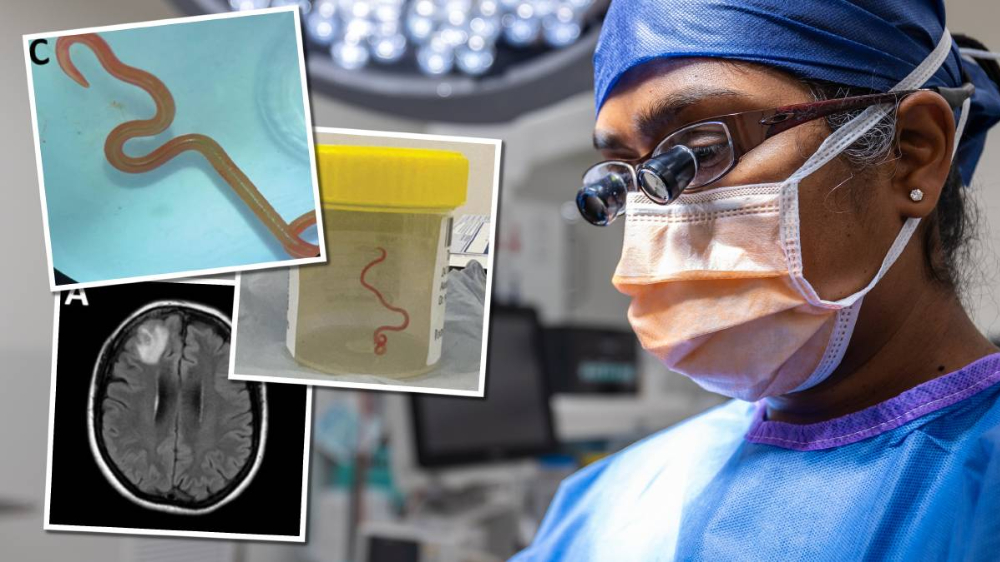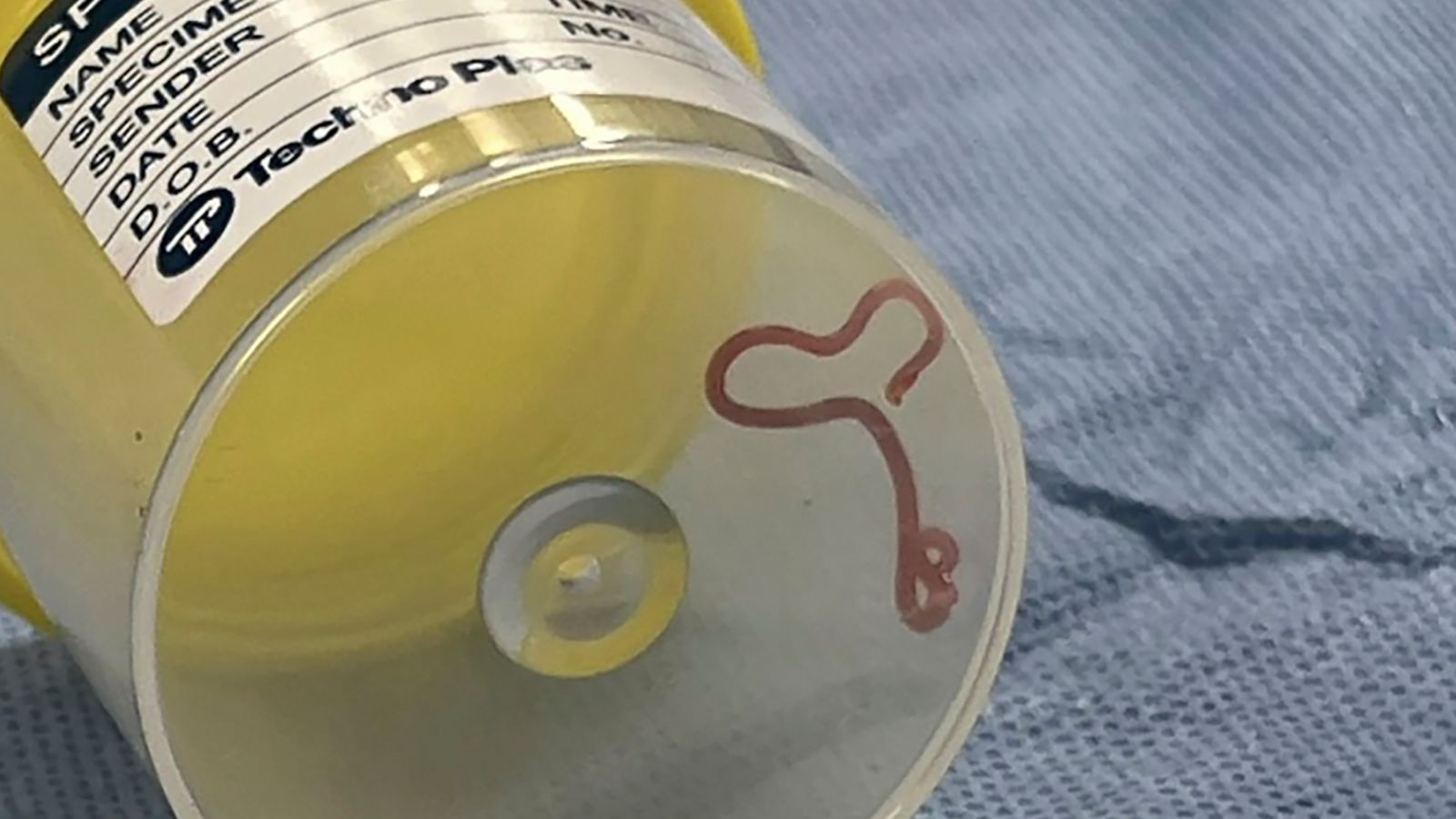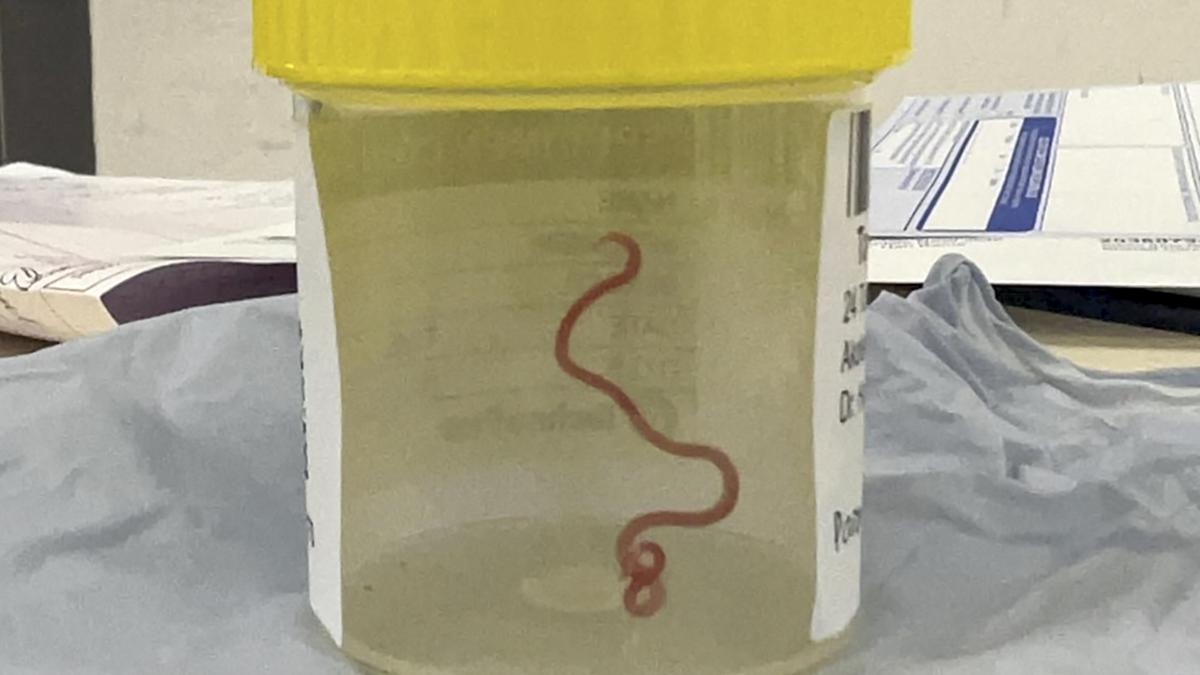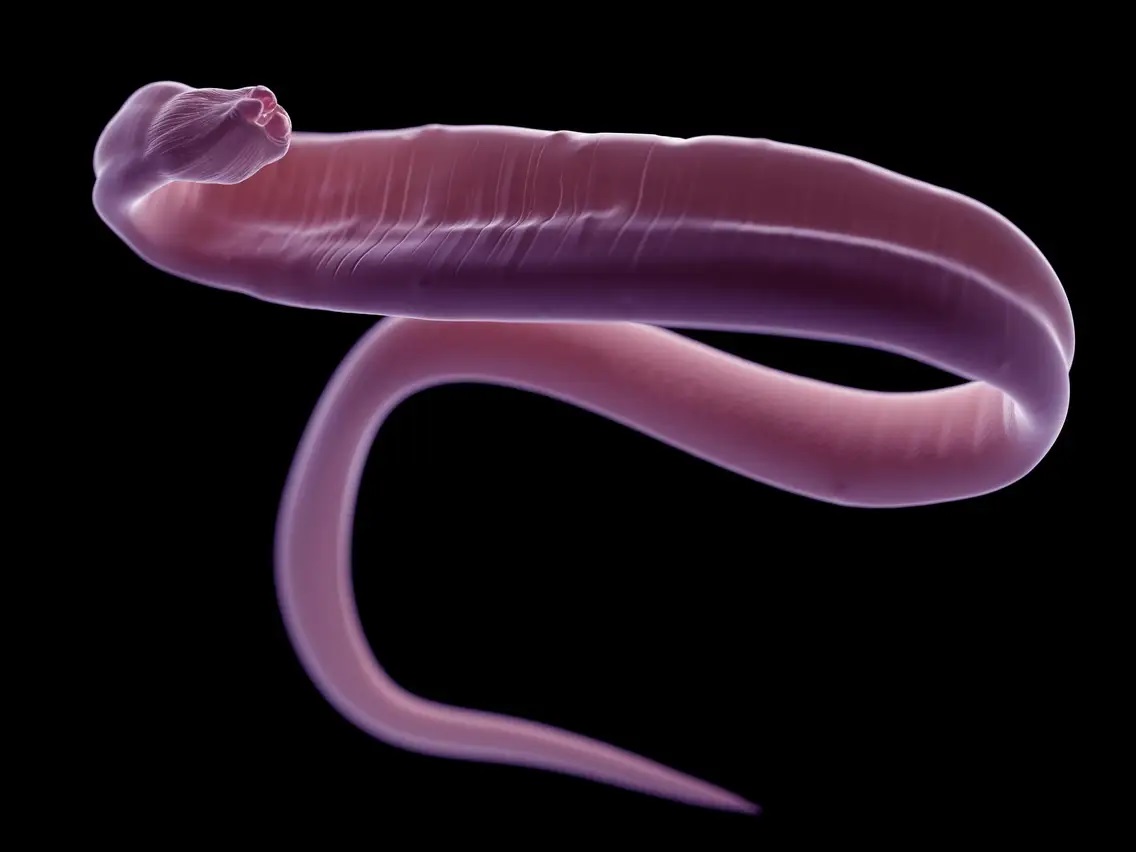The world is left stunned after doctor found a live parasitic worm inside the brain of a 64-year-old woman from Australia.
In an astonishing medical revelation, a woman’s battle with mysterious symptoms led to the unprecedented discovery of an 8cm-long parasitic roundworm residing in her brain. The groundbreaking case has now become a world-first incident.
The patient, a 64-year-old woman from south-eastern New South Wales, initially sought medical attention due to persistent abdominal pain, diarrhea, fever, and night sweats. However, as her symptoms escalated to include forgetfulness and depression, her condition took a perplexing turn that prompted her referral to Canberra hospital.
Upon conducting an MRI scan of her brain, medical professionals unearthed unexpected abnormalities that necessitated surgical intervention. Neurosurgeon Dr. Hari Priya Bandi embarked on the procedure with no anticipation of the astonishing revelation that lay ahead.
In a shocking turn of events, Dr. Bandi extracted the parasitic worm that was not only alive but also actively wriggling within the patient’s brain. The unforeseen discovery prompted medical experts to scramble for information on the type of roundworm responsible for this unprecedented occurrence and to determine the appropriate course of action for the patient’s treatment.
The patient’s exposure to the parasite is believed to have occurred inadvertently through her interactions with the environment. Residing near a lake area that is home to carpet pythons, the patient often collected native grasses, including warrigal greens, from the surroundings for culinary purposes.
It is hypothesized that a python may have shed the parasite via its feces into the grass, which subsequently led to her infection after contact with the grass or consuming the greens.
Collaboration between medical professionals and experts from various fields helped identify the parasite as Ophidascaris robertsi, a roundworm commonly found in pythons. This marks the very first recorded instance of this parasite being found in humans.
The case poses several questions for researchers, including how the parasite managed to invade the patient’s brain and whether any pre-existing medical conditions contributed to her vulnerability.
With the patient’s recovery on track, this extraordinary incident adds a unique chapter to the annals of medical science and demonstrates the complex interactions between humans and the natural world.
The details of this remarkable case have been documented in the September edition of the journal Emerging Infectious Diseases, providing an unprecedented glimpse into a medical mystery that has now been unraveled.












